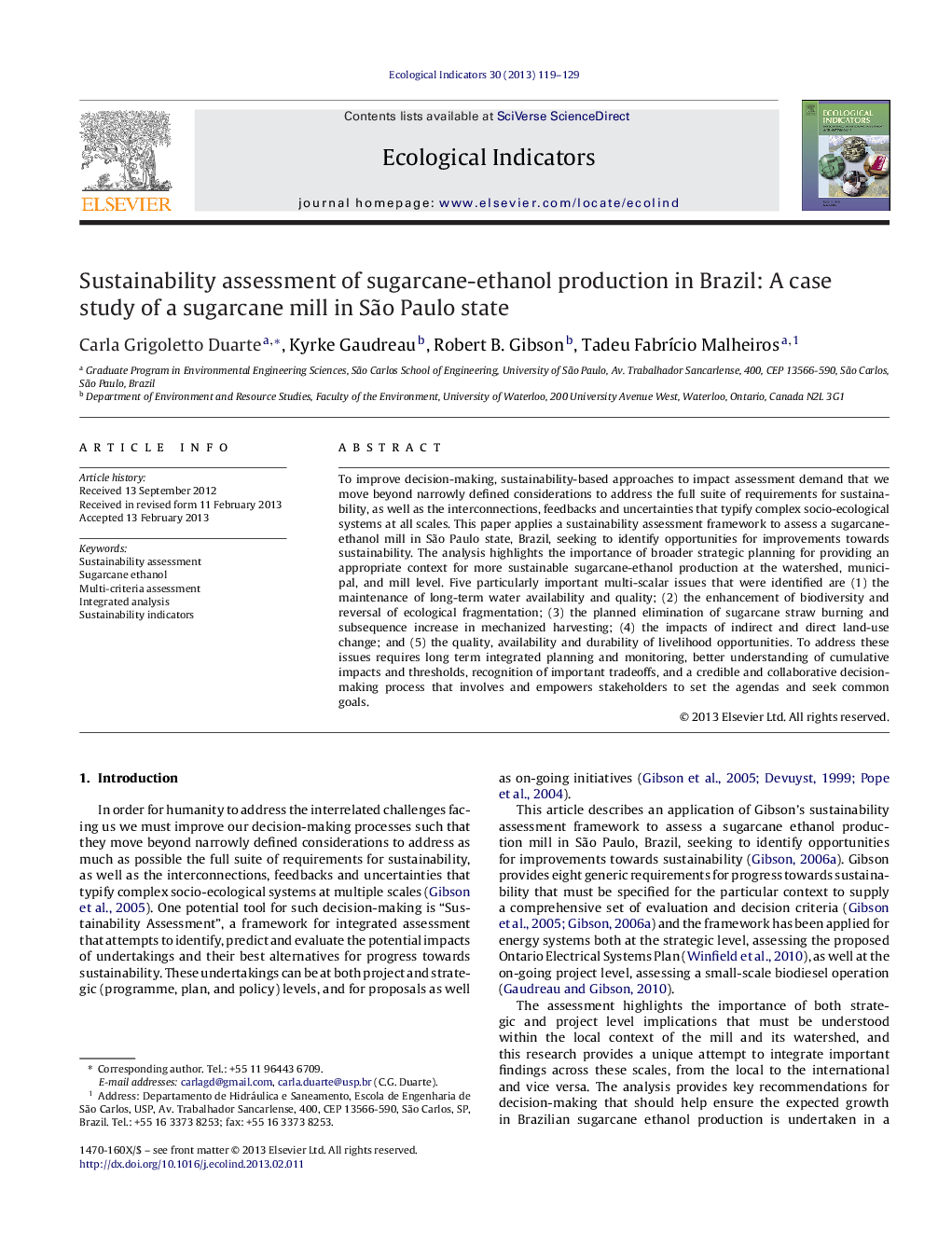| Article ID | Journal | Published Year | Pages | File Type |
|---|---|---|---|---|
| 4373430 | Ecological Indicators | 2013 | 11 Pages |
To improve decision-making, sustainability-based approaches to impact assessment demand that we move beyond narrowly defined considerations to address the full suite of requirements for sustainability, as well as the interconnections, feedbacks and uncertainties that typify complex socio-ecological systems at all scales. This paper applies a sustainability assessment framework to assess a sugarcane-ethanol mill in São Paulo state, Brazil, seeking to identify opportunities for improvements towards sustainability. The analysis highlights the importance of broader strategic planning for providing an appropriate context for more sustainable sugarcane-ethanol production at the watershed, municipal, and mill level. Five particularly important multi-scalar issues that were identified are (1) the maintenance of long-term water availability and quality; (2) the enhancement of biodiversity and reversal of ecological fragmentation; (3) the planned elimination of sugarcane straw burning and subsequence increase in mechanized harvesting; (4) the impacts of indirect and direct land-use change; and (5) the quality, availability and durability of livelihood opportunities. To address these issues requires long term integrated planning and monitoring, better understanding of cumulative impacts and thresholds, recognition of important tradeoffs, and a credible and collaborative decision-making process that involves and empowers stakeholders to set the agendas and seek common goals.
► Applied a sustainability assessment framework to a sugarcane ethanol mill. ► Covers a full range of issues and seeks integration across domains and scales. ► Opportunities for improvement were identified at the mill and other scales. ► The mill under investigation has shown progressive qualities. ► Important strategic issues must be addressed at all levels of government.
